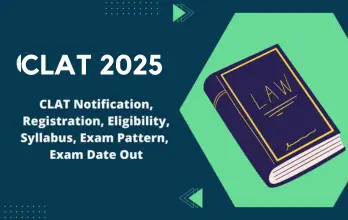
The position of Assistant at the Reserve Bank of India (RBI) is widely regarded as prestigious due to its highly competitive salary package, coupled with numerous perks and incentives. However, in the fast-paced and highly competitive world of the RBI Assistant exam, effective time management holds significant importance. With limited time allocated for each section, including Quantitative Aptitude, Reasoning Ability, English Language, and General Awareness, it becomes crucial to skillfully manage the available time to attempt the given questions.
Effective time management not only enables candidates to cover all the essential topics within the stipulated timeframe but also guards against the occurrence of silly mistakes and anxiety-induced errors. Moreover, proper time management helps alleviate anxiety and stress associated with time constraints, allowing you to remain focused, composed, and confident throughout the exam.
Through this blog, we will explore a range of techniques and tips that can assist candidates in mastering the art of effective time management for the RBI Assistant exam.
Understand the Exam Pattern
To formulate an effective time management strategy, the initial step is to comprehend the RBI Assistant exam pattern, including the number of questions presented in each section and the allocated time for attempting them. By knowing the distribution of questions and time constraints in each section, you can allocate your time efficiently, ensuring that you devote an appropriate amount of time to each question without compromising on accuracy or rushing through the exam.
RBI Assistant Prelims Exam Pattern:
| S.No | Name of the Test | Number of Questions | Maximum Marks | Duration |
| 1. | English Language | 30 | 30 | 20 minutes |
| 1. | Reasoning Ability | 35 | 35 | 20 minutes |
| 2. | Numerical Ability | 35 | 35 | 20 minutes |
| Total | 100 | 100 | 60 minutes |
RBI Assistant Mains Exam Pattern
| S.No | Name of the Test | Number of Questions | Maximum Marks | Duration |
| 1. | Test of Reasoning | 40 | 40 | 30 minutes |
| 2. | Test of English Language | 40 | 40 | 30 minutes |
| 3. | Test of Numerical Ability | 40 | 40 | 30 minutes |
| 4. | Test of General Awareness | 40 | 40 | 25 minutes |
| 5. | Test of Computer Knowledge | 40 | 40 | 20 minutes |
| Total | 200 | 200 | 160 minutes |
Prioritize Easy Topics
It is a common pitfall among candidates to tackle complex topics such as puzzles, coding-decoding, sentence rearrangement, etc., right at the beginning of the exam. Unfortunately, this approach often leads to getting stuck on these challenging questions, resulting in a significant loss of valuable time as well as confidence. When a substantial portion of your allotted time is consumed on a single question, it can severely impact your overall performance in other sections. Effective time management for RBI Assistant Exam involves making wise choices and optimizing every second to maximize your potential for success.
To avoid this time-draining mistake, it is advisable to adopt a strategic approach by prioritizing simpler and more manageable questions initially. By completing easier tasks efficiently, you can build momentum, save time, and ensure a smoother progression throughout the exam. This approach ensures a solid foundation in terms of marks right from the beginning and saves you time in tackling the more complex and time-consuming questions that may follow.
Here, we will discuss section-wise strategy along with a few topics that are generally considered to be relatively easier in the RBI Assistant exam. However, it's important to note that the perception of difficulty may vary among candidates. To identify the topics that you personally find easier, it is highly recommended to regularly attempt mock tests and analyze the results. Remember, individual preferences and abilities differ, so invest time in practice and exploration to develop a personalized strategy that works best for you.
Reasoning Section
• Inequality, Syllogism, Alpha Numeric Symbol Series, Alphabet Test, Direction, and Sense are some of the most doable questions in this section.
• Also, you should remember that if you’re good at solving puzzles, you’re always going to score well in this section because more than half of this section consists of puzzles.
• Questions in this section are quite tricky & getting hooked up with a question can be a huge risk. If you are unable to solve any question in the first go, mark it and move on to the next question without wasting a second.
Quantitative Aptitude Section
• Simplification, Number Series, Approximations, Quadratic Equations, and One or Two DI are some of the easy topics in this section that should be tackled first.
• A knowledge of short tricks will help you in having that extra edge over your competitors in this section.
• Memorizing squares from 1-30 and cubes from 1-15 will help you to improve your calculation speed and attempt more questions in the saved time.
English Language Section
• Finding Errors, Sentence Correction, Cloze Test, and Connecting the Sentences are some of the easy topics of this section that can be done in a go.
• Dedicating time to reading newspapers and English magazines can prove to be a valuable investment for achieving a higher score in the English section of the RBI Assistant exam.
• Integrating English vocabulary quizzes and games into your study routine can enhance your understanding of nuanced meanings, and develop the ability to quickly comprehend complex passages.
Harness the Power of Mock Tests for Effective Time Management
Mastering the art of effective time management is the key to success in the RBI Assistant exam. With its diverse sections and limited timeframe, efficiently utilizing every precious minute becomes paramount. The ability to strategically allocate time to each section, question, and even individual task within a question can make a world of difference in achieving optimal performance in the RBI Assistant Exam.
When it comes to efficient time management in the RBI Assistant exam, there is no substitute for RBI Assistant Mock Tests. These tests serve as invaluable tools in helping you become familiar with the overall structure of the RBI Assistant Exam, identify areas of strength and weakness, and develop effective strategies to optimize your time.
Let us understand how you can harness the power of RBI Assistant mock tests for effective time management:
1. Begin by attempting an RBI Assistant Mock Test to familiarize yourself with the exam pattern and gain practical experience in solving a variety of questions.
2. Next, navigate to the "Smart Analytics" section of Smartkeeda and access the "Time Management" tab.
3. Analyze the “Average time spent” on each question and compare it with your own time allocation. Take note of the topics where you exceed the average time spent, as they may require additional focus and practice.
4. Observe the “Time spent by the Topper” on easy questions. Look for strategies or techniques that can help you save more time when approaching similar easy questions.
5. Identify the questions that were intentionally skipped by the top performers to optimize their time. Gain an understanding of the types of questions that can be skipped strategically, allowing you to allocate more time to challenging or high-scoring questions.
By following these steps and thoroughly analyzing the insights provided by the Smart Analytics feature of Smartkeeda Mock Tests, you can refine your time management skills, prioritize your efforts, and maximize your efficiency in the RBI Assistant exam.
• Attempt a free RBI Assistant Prelims Mock Test here!
• Attempt a free RBI Assistant Prelims Mock Test here!
Learn from Time Management Mistakes
Making mistakes is an inevitable part of the learning journey. By analyzing your time management mistakes you can use them as valuable lessons for refining your strategies. Time management mistakes often stem from inadequate planning and prioritization. When you review your mistakes, you can assess whether your initial planning was realistic and efficient. Did you allocate enough time for each question? Did you prioritize the most important questions appropriately? Identifying mistakes helps you refine your approach, allowing you to create a more effective study schedule and allocate your time wisely.
Here are some common time management mistakes made by candidates during bank exams:
• Spending excessive time on a single question
• Starting with difficult questions
• Insufficient planning and prioritization
• Failure to skim through the entire question paper
• Lack of time tracking during the exam
• Less or no knowledge of the marking scheme
Efficient time management enables you to strike a balance between speed and accuracy, ensuring a systematic approach toward attempting questions. By learning from these time management mistakes and implementing strategies to overcome them, you can significantly improve your performance in the RBI Assistant exam.
By effectively managing time, you can avoid falling prey to silly mistakes that often occur due to rushed decision-making. With a proactive approach to learning from your mistakes, you can develop efficient time management skills that will serve you well not only in this exam but throughout your academic and professional life.

Author : Anjali
Hi, I am Anjali, a Probationary officer at a leading Public Sector Bank. With a passion for helping aspiring bankers, I have embarked on a journey to share my knowledge and insights through informative blogs. Having successfully cleared various bank exams myself, including IBPS PO XII, I understand the challenges and the importance of effective preparation. Through my blogs, I aim to provide valuable tips, strategies, and resources specifically tailored for bank exams, empowering the aspirants to achieve their dream of a successful banking career.
FAQ’s
RBI Assistant is a time-bound exam with sectional time limits for each section. Effectively managing time allows you to complete the required sections and questions within the allocated time frame, maximizing your performance in each phase. Proper time management ensures efficient use of time, prevents rushing through questions, and allows for thorough review and revision before submitting the exam.
Effective time management allows you to allocate sufficient time for each question, ensuring that you can attempt all the questions within the given time frame. This maximizes your chances of earning more marks and getting an edge over your competitors. Additionally, it helps reduce stress and enables you to approach complex questions with a clear and focused mindset, ultimately improving your overall exam performance.
To prioritize easy topics, it is recommended to solve previous year's papers to identify which topics you find relatively easier. Additionally, regularly attempting mock tests helps you understand your strengths and weaknesses. Prioritizing easy topics ensures that you gain confidence and accumulate marks efficiently during the exam.
To set realistic study goals and manage your time effectively, regularly attempt mock tests to identify areas where you spend excessive time. Take note of these topics and practice them individually until you can reduce the time taken. This targeted approach will help you focus on improving specific areas and ensure that your study goals align with your time constraints.
To create a study schedule for the RBI Assistant exam, assess the exam syllabus and exam pattern, break down the syllabus into manageable chunks, and allocate specific time slots for each topic or section. Regularly attempt mock tests to identify your strengths and weaknesses in different subjects or sections and allocate dedicated time for revision to reinforce your learning and improve retention of key concepts.





